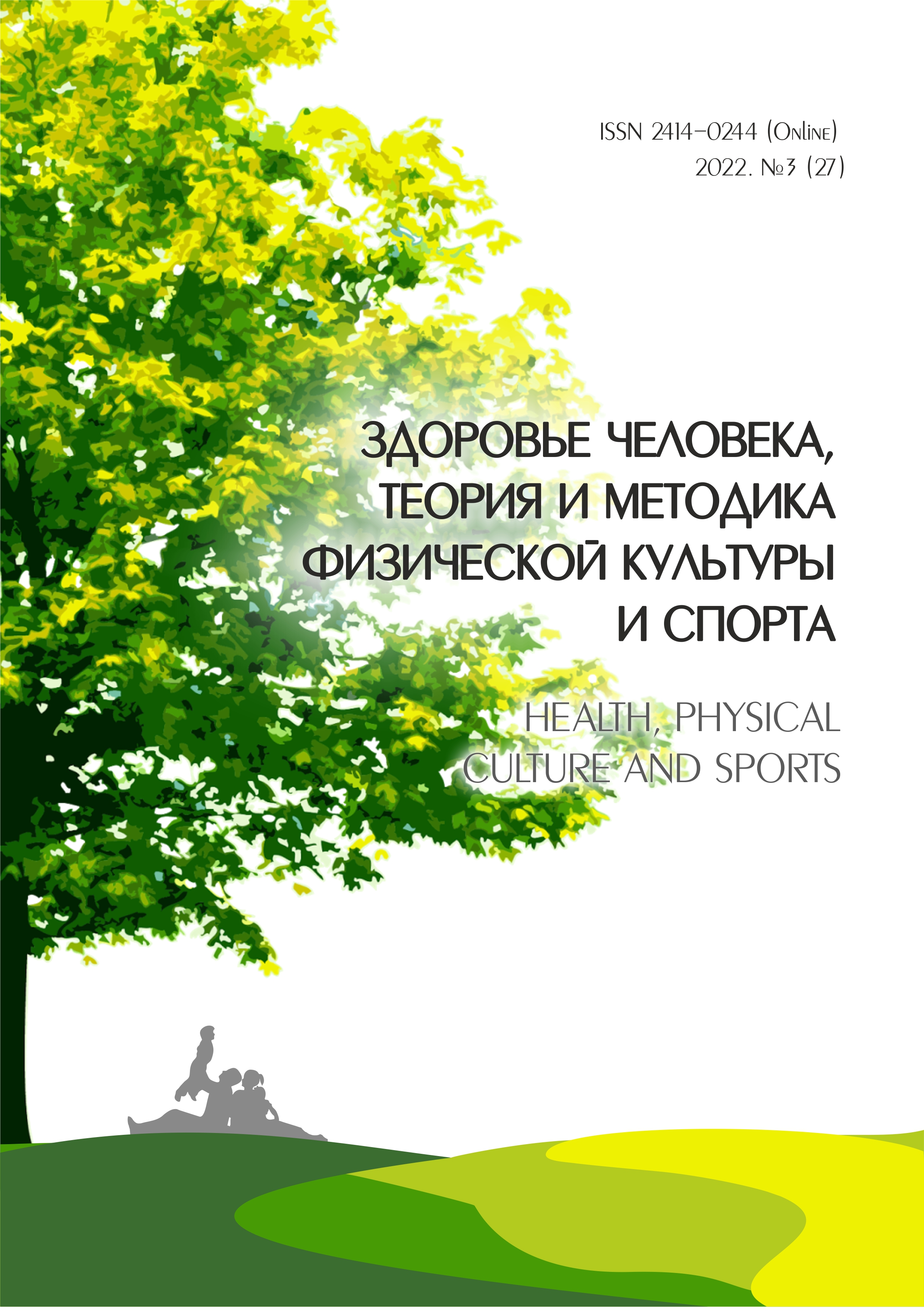SOME ASPECTS OF HEALTH-SAVING PEDAGOGY. TURNING TO THE PAST
Abstract
Currently, one of the most important problems facing humanity is the problem of maintaining health. In our country there is a rich tradition of successful development of its various aspects and the implementation of effective wellness activities. However, over time, the issues of health care require more and more attention, reflecting the challenges of modernity in a developing society. In this situation, it seems productive to use the elements of the methodology of the diachronic approach and turn to some attempts to improve society that have been in the past. It will be about valeology.
Now the surge of interest in individual human health provoked by the development of valeology seems to be very significant. The idea of the integrity of a person in the aspect of his physical, mental, spiritual and moral health continues to develop in the problems of physical culture, pedagogy, psychology, medicine, etc., which shows the invariance of the strategic line of the development of knowledge about a person. No less important are the merits of valeology in increasing the importance of health pedagogy, strengthening the methodology of a systematic approach in the concepts of physical culture and wellness activities, substantiating the importance of the need-motivational sphere as the central point of pedagogical efforts in the formation of health-saving behavior. Currently, it is clearly realized that the wellness cluster should be organically integrated into the individual system of physical culture of the individual, and this can be realized only in the course of real, properly organized practical activities, for example, in officially regulated physical culture classes or in the process of sports training.
It should also be noted that in recent years, in practice, there has been a blurring of boundaries in determining the areas of responsibility for the pedagogical aspect of solving the health-saving problem and the lack of an adequate level of interdisciplinary cooperation in the issue under consideration. Perhaps in the very near future we will witness another round of the spiral of the ascent of scientific knowledge, which will open up new directions in the development of ideas about the "healthy person".
Downloads
References
Воронцов П.Г., Дейс Д.А., Лобыгина Н.М., Недорезков К.В. Ценностный потенциал физической культуры в системе профессиональной подготовки студентов медицинского университета // Философия образования. 2020. № 1. С. 81–93.
Кохан С., Макарова И., Сарудейкина Ю. Социальные паттерны восприятия угрозы заражения новой коронавирусной инфекцией SARS-COV-2 // Здоровье человека, теория и методика физической культуры и спорта. 2022. № 1. С. 5–14.
Лигута В., Лигута А. Физкультурно-спортивная деятельность и здоровый образ жизни слушателей юридического вуза МВД России разных лет обучения // Здоровье человека, теория и методика физической культуры и спорта. 2022. № 1. С. 45–53.
Лопатина О.А., Жеронкина A.A. Роль физической активности в жизни студентов в условиях распространения новой коронавирусной инфекции // Здоровье человека, теория и методика физической культуры и спорта. 2021. № 3. С. 20–24.
Макунина О., Ботагариев Т., Коваленко А., Быков Е., Кубиева С. Сравнительная оценка состояния здоровья студентов Казахстана и России // Здоровье человека, теория и методика физической культуры и спорта. 2022. № 2. С. 78–86.
Минигалеева А.З. Проблемы и перспективы процесса формирования потребностей в здоровом образе жизни у студентов специальных медицинских групп подготовки (обучения) по физической культуре в вузе // Теория и практика физической культуры. 2022. № 4. С. 94
Михальчи Е. Эмоциональный и ценностный аспекты внутренней картины здоровья у современных молодых людей // Здоровье человека, теория и методика физической культуры и спорта. 2022. № 1. С. 15–23.
Селюкин Д.Б., Новикова А.В., Мурашева М.В., Яковлев С.А. Формирование навыков здорового образа жизни у будущих инженеров с применением кейс-технологии // Теория и практика физической культуры. 2022. № 3. С. 55
Copyright (c) 2022 Health, physical culture and sports

This work is licensed under a Creative Commons Attribution-NonCommercial 4.0 International License.
An author should not normally publish manuscripts describing essentially the same research in multiple journals or publication venues. Such redundant publication is generally considered to constitute unethical publishing behavior, and if discovered may result in a manuscript under consideration being rejected, or a published article being retracted.
Authors of manuscripts reporting on original research should present an accurate account of the work performed, accompanied by an objective discussion of its significance. Underlying data should be represented accurately in the manuscript. The manuscript should contain sufficient detail and references to permit others to replicate the work. The fabrication of results and the making of fraudulent or knowingly inaccurate statements constitute unethical behavior and may be cause for rejection or retraction of a manuscript or published article.





